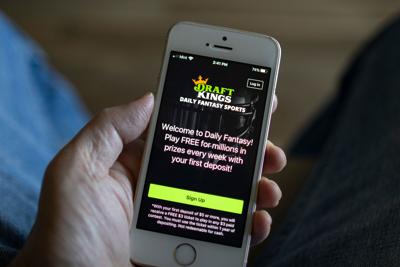A local gambling addiction expert has issued a warning ahead of the Super Bowl.
The group is offering responsible gambling advice and resources to those seeking help.
The Tennessee Institute for Gaming Education and Research (TIGER) is expressing strong concern ahead of Super Bowl LVII and the potential for gambling addiction. On the annual day when people place billions of dollars in sports bets, the American Gaming Association (AGA) estimates that a record number of people will be betting on the big game this year.
Tennessee does not allow for brick-and-mortar sportsbooks, but sports betting online has been available since November 2020.
In fact, Tennessee became the first state to pass a mobile and online-only sports betting law. With a few clicks, anyone in the Volunteer State at least 21 years old can sign up for one of the many sports betting apps and wager on the big game.
Placing bets online might seem like an innocent way to add a little excitement to the game, but sports betting, win or lose, is often the "kick-off" to a path of ruin. Furthermore, Super Bowl Sunday is a time when individuals with gambling addiction and those recovering from gambling issues are incredibly vulnerable.
"Online sports betting makes it easy, and less work is required to engage in it. This increases the risk for some to develop an addiction to gambling and for those in recovery to relapse," says Dr. James P. Whelan, Ph.D., Professor & Director at The Institute for Gambling Education and Research.
The encouragement to place a bet is everywhere. When you turn on the television, glance through social media, listen to sports radio or watch the broadcast of a game, the advertising and references to betting are nearly impossible to ignore. Yet gambling addiction danger is not being adequately addressed.
We must raise awareness that gambling addiction and harm are real and that the damage surpasses the addiction and beyond the individual.
- On average, each person experiencing gambling harm negatively impacts six other people.
- Families where a parent has a gambling disorder are more likely to experience domestic violence, including child abuse.
- 15% of those who have a gambling disorder commit crimes as a desperate attempt to secure funds to gamble.
- 57% of individuals with a gambling problem also struggle with alcoholism or substance use disorder (SUD.)
- Those with problems due to gambling are more likely to have mental health diagnoses such as depression and anxiety and have a high rate of suicidal ideation.
- Someone with a gambling problem is more likely to have a failed business or bankruptcy
“As a gambling researcher, I agree that the dangers are indisputable, and rapid change certainly escalates concern. Evidence reliably supports that one to two percent of the population experiences a gambling disorder and another three percent have intermittent problems related to gambling,” says Dr. Whelan.
Unfortunately, the public stigma of a gambling issue and lack of awareness of options for help results in few seeking treatment. Nine out of 10 individuals with a gambling problem never get the help they need.
“We need to let people know there is help out there for those with gambling issues. Growing evidence supports that psychological treatments, particularly cognitive-behavior treatments, effectively reduce gambling disorder symptoms and can change gambling behaviors,” says Dr. Whelan.
Additionally, Dr. Whelan wants those who choose to sports bet to know that there are “responsible gambling” strategies that are important in mitigating the harms of gambling and creating social safety nets.
"Having been involved in responsible gambling efforts and gambling treatment research for over two decades, I can attest that there are long-standing commitments within the industry to be socially responsible. Likewise, there are many informed government regulators with expertise that are grounded in research, and they are dedicated to their job of protecting the public,” says Dr. Whelan. “That said, the rapid adoption of sports wagering presents many challenges to the gambling industry, the government regulators, and the researchers, like me, striving to fuel responsible gambling efforts with the much-needed empirical support."
Statistics show that as many as 10 million Americans live with gambling addiction—more than 250,000 of them right here in our state. Because the act of gambling itself is not illegal in Tennessee, it makes it easier for people to justify risky gambling behaviors.
Researchers need the media's help in getting the word out before Super Bowl Sunday to use caution when sports betting. "Gambling addiction is real, and the consequences can be dire for individuals who develop a gambling problem," says Dr. Whelan.
With “March Madness” just around the corner, the Super Bowl isn't the end of sports betting temptation season— it's the beginning.
If anyone you or anyone you know is struggling with gambling, you can reach the group at TheGamblingClinic.com or call 901.678.STOP.










